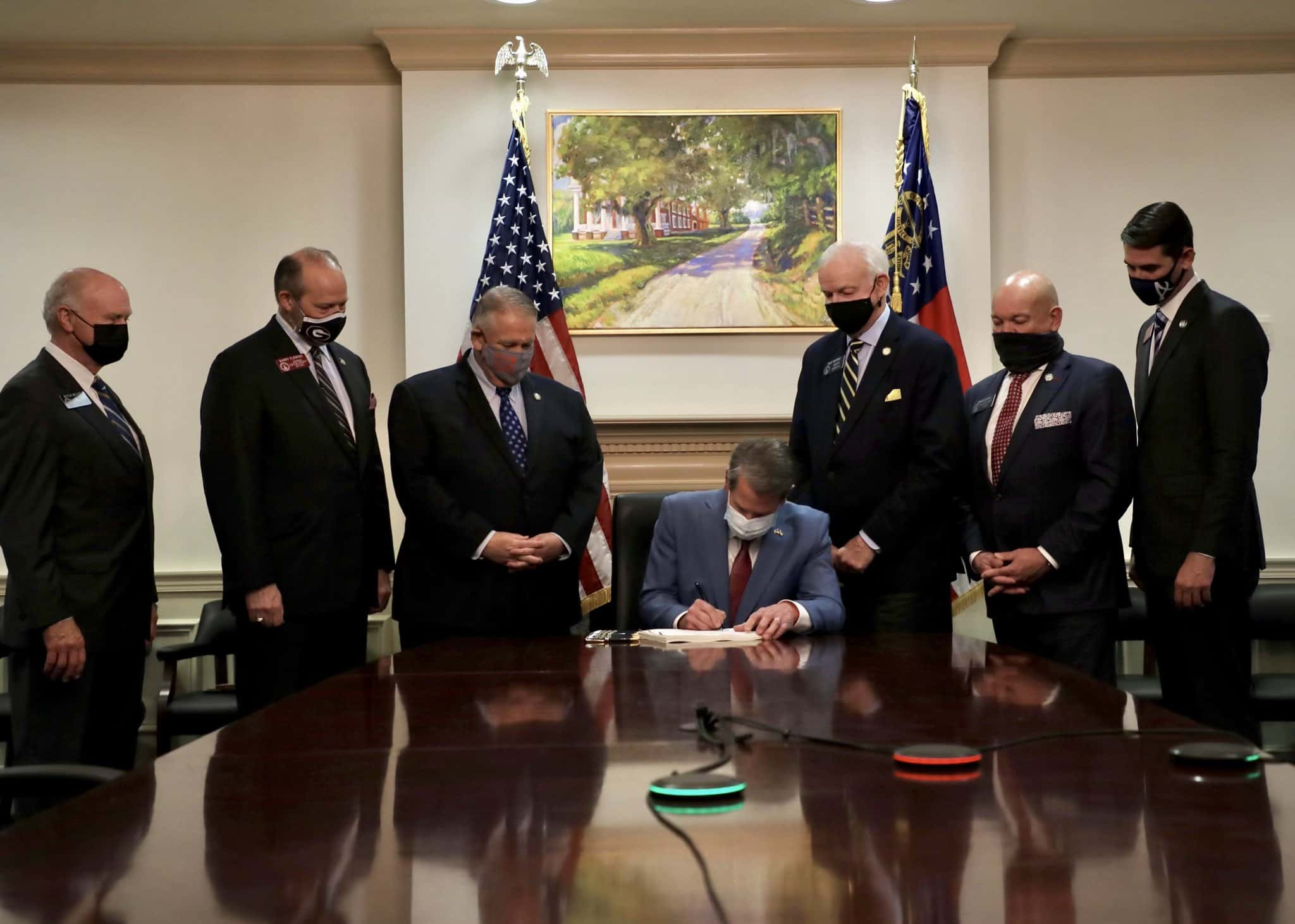Boycott Coca-Cola: Did company donate to Georgia GOP? Truth behind fury over Republican voter suppression laws

Activists have targeted Coca-Cola after the company refused to condemn Republican's voter suppression laws in Georgia. The hashtag 'Boycott Coca Cola Co' has started trending on Twitter, with people calling the company out. The boycott was first called by leaders of the sixth district of the AME church, which reportedly has over 500 black churches.
Activists have been targeting Georiga-based companies like Coca-Cola, Delta Airlines, Home Depot, Aflac, and UPS, asking them to use their power to oppose bills that make it harder to vote. Since the bill has passed, the activists have stepped up their campaign targeting Coca-Cola first.
RELATED ARTICLES
A lot of the anger seems to be around the fact that the company heavily contributes to Republicans. Data from Open Secrets shows that the company more to Republicans between 1996 and 2018, before swinging the other way in 2020.
Republicans in Georgia passed a slew of voter restriction laws under SB 202, signed by Governor Brian Kemp on March 25. Amongst other things, the bill imposes new voter identification requirements, limit ballot drop boxes and make it a crime to offer food and/or water to those waiting in line to vote. It has been heavily criticized by Democrats and activists, who say it unfairly targets minority voters.

Coca-Cola and Republicans
The Coca-Cola company has a long history of supporting Republican candidates. The company PAC donated $409.2k to Republicans in the 2016 cycle, the highest number since 1990. Since then, it has slightly reduced the amount it donates to Republicans, but it still makes significant contributions. The only time the company took a stance against the GOP was in early January, after the insurrection at the Capitol. The company froze all political donations, including that for Democrats, after the violent attack.
In Georgia, the company has reportedly been a close ally of former Senator David Perdue. Coke donated $50,000 to his first gubernatorial race in 2003. The company also reportedly donated $15,000 to Perdue's campaign and $25,000 to Perdue’s One Georgia PAC in 2020. It's unclear if the company has funded other Republicans in the state, but it is possible given the pro-business stance the GOP has.
Following the passage of SB 202, the company reportedly issued a statement saying it supports a “balanced approach to the elections bills that have been introduced in the Georgia Legislature this session.” It went on to add, "The ultimate goal should be fair, secure elections where access to voting is broad-based and inclusive." The company told The Guardian that it was "aligned" with the Georgia chamber of commerce. The chamber issued a statement last week expressing “concern and opposition” against SB 202, but no further action and statements came.
Activists have since attacked the company for its line. Bishop Reginald Jackson told the Atlanta Journal-Constitution "this past summer, Coke and other corporations said they needed to speak out against racism. But they’ve been mighty quiet about this.” Leading action is a coalition of groups including the New Georgia Project, Georgia STAND-UP, the Georgia NAACP, and Black Voters Matter. The boycott is an escalation after previous attempts, including a die-in at the Coca Cola World in Atlanta, failed to get the company's attention. The coalition also took out a full-page ad in the AJC.
It's unclear if the boycott will get the company to change track, but that hasn't stopped the activists from trying. It has also got national attention, with the hashtag now trending on Twitter. Hours ago, Coke issued a statement via Twitter saying, "we believe voting is a foundational right in America and access should be broad-based and inclusive."
We believe voting is a foundational right in America and access should be broad-based and inclusive. Learn More: https://t.co/Cidf8CyNUb pic.twitter.com/giiAKerkK3
— The Coca-Cola Co. (@CocaColaCo) March 26, 2021

'#BoycottCocaColaCo is trending because they donated TENS OF THOUSANDS OF DOLLARS to Georgia Republicans'
Democratic volunteer Jake Lobin tweeted, "#BoycottCocaColaCo is trending because they donated TENS OF THOUSANDS OF DOLLARS to Georgia Republicans who just passed the state's voter suppression bill. In other words... COCA-COLA FUNDS RACISTS."
#BoycottCocaColaCo is trending because they donated TENS OF THOUSANDS OF DOLLARS to Georgia Republicans who just passed the state's voter suppression bill.
— Jake Lobin (@JakeLobin) March 27, 2021
In other words... COCA-COLA FUNDS RACISTS.
Replying to that, one user tweeted, "Coca-Cola rots teeth, in addition to funding racists". Another said, "I’m likely in the minority, but I’ve been a Pepsi drinker my entire life. There is something inherently evil about Coke. It all makes sense now." One person announced "Today I drank my last coke @CocaCola #BoycottCocaColaCo" Another person tweeted, "#BoycottCocaColaCo felt awful knowing I bought a can today. I WONT NO MO. #Coke".
Coca Cola rots teeth, in addition to funding racists
— Robert Paster (@RobertPasterDMM) March 27, 2021
I’m likely in the minority, but I’ve been a Pepsi drinker my entire life. There is something inherently evil about Coke. It all makes sense now.
— Chas Gorman (@GormanChas) March 27, 2021
Today I drank my last coke @CocaCola #BoycottCocaColaCo
— stonedpooters (@stonedpooters) March 27, 2021
#BoycottCocaColaCo felt awful knowing I bought a can today. I WONT NO MO. #Coke
— Take Us Forward (@BrezzyG5) March 27, 2021
Others on social media have condemned the boycott, arguing it doesn't do much to harm the company. Others have also argued that the company donates to Democrats and that political funding is common for big corporations. However, those tweets seem to be a minority, with more support for the boycott than against. The company is yet to issue a statement against the boycott.
Activists all over the country are targeting Republicans over SB 202. It is one of the more than 250 bills in 43 states that the Republicans are in various stages of passing. They argue that the bills improve the integrity of the elections, after repeated claims of voter fraud in the 2020 Presidential Election. Critics argue that the votes unfairly target minority voters, making it harder for them to vote. Very few businesses have publicly slammed the bills, even though it has become a major political flashpoint.










